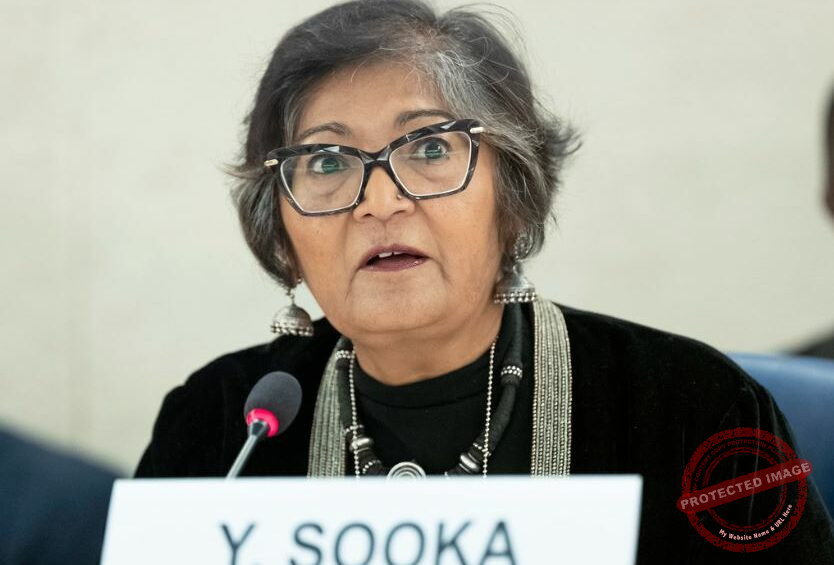
Yasmin Sooka, Chairperson of the Commission on Human Rights in South Sudan present his report at a 40th Session of the Human Rights Council. 12 March 2019. UN Photo / Jean Marc Ferré
The UN Commission on Human Rights has urged South Sudan’s government to urgently cease unlawful media censorship and an end to restrictions on civic and political activities.
The report, titled “Entrenched Repression: the systemic curtailment of democratic and civic space in South Sudan” is based on the Commission’s independent investigations in 2023.
The report released on Thursday, October 5, in Nairobi Kenya examines the current situation of South Sudanese media and civil society actors, both in and outside of the country.
It pointed out that considering the prospect of national elections in December 2024, the government to halt attacks on journalists and human rights defenders.
“Independent media and a vibrant civil society represent critical voices in developing accountable governance, and the democratic processes required to enable peace and ensure human rights,” said the Chair of the Commission, Yasmin Sooka.
“Surprisingly the Government instead treats journalists and civil society members who voice critique as enemies of the ruling political party, reflecting its extreme intolerance of all forms of public scrutiny and critical views. This does not bode well for democratic prospects.”
The report says the State’s repressive treatment of the vital spheres serves as key indicators of prospects for accountable governance and a democratic society.
It details how the National Security Service (NSS) interferes heavily with media and the activities of civil society groups.
The report added that independent online media are routinely targeted by cyberattacks and website blockages.
It says the National Security Service also demands civil society groups seek prior authorization for all activities, which are then monitored to dissuade talk on topics and events that authorities would prefer them to avoid.
The UN report pointed out that individuals who do not follow these rules are usually subjected to surveillance, intimidation, and human rights violations including arbitrary detention.
It says extensive extraterritorial operations by NSS in other countries, including illegal renditions from Kenya, mean that few places are safe for individuals targeted by the Government.
It also stated that the government has instrumentalized to entrench the rule of the dominant political party, and NSS mirrors tactics used by intelligence services of the Khartoum regime when the south was part of Sudan.
The report is primarily informed by documentation and evidence gathered independently by the Commission from its interviews and meetings conducted with survivors and witnesses of human rights violations, South Sudanese activists, members of the media and civil society and their family members.
It also draws on material in the public domain.
The Commission consulted extensively with key stakeholders including parliamentarians and members of the Government, as well as with service providers, lawyers, and related experts including United Nations Member States and entities.
It says investigations informing the report were conducted in 2023.
The Commission received detailed witness statements, conducted meetings, organized focus group
discussions, and gathered confidential testimony.
Support Eye Radio, the first independent radio broadcaster of news, information & entertainment in South Sudan.
Make a monthly or a one off contribution.
Copyright 2024. All rights reserved. Eye Radio is a product of Eye Media Limited.